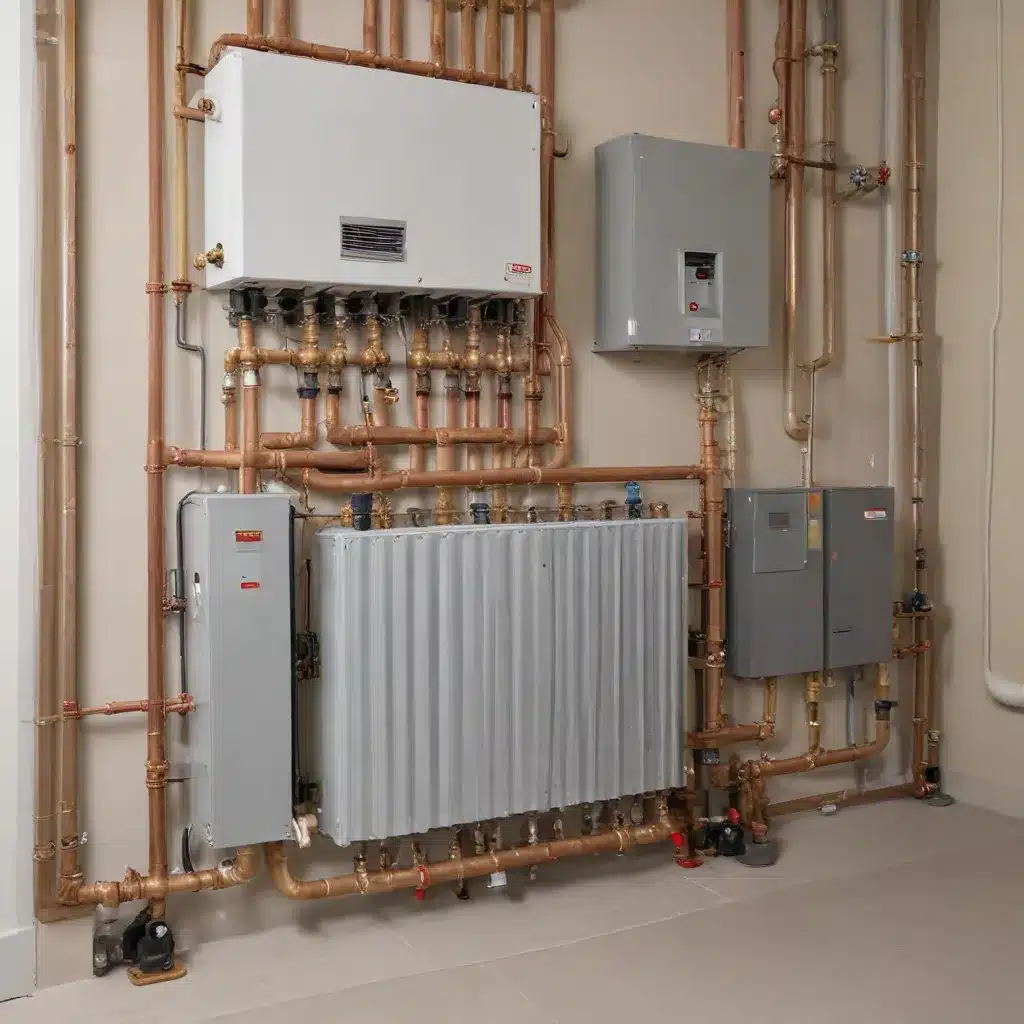
Understanding Hydronic Heating Systems
Hydronic heating systems, also known as radiant floor heating, are an efficient and comfortable heating solution for both new construction and existing homes. These systems circulate warm water through a network of tubing installed beneath the floor, radiating heat upwards to warm the living space. By utilizing the entire floor as a heat transfer surface, hydronic systems provide consistent, even warmth that can be customized to individual preferences and needs.
The Mechanics of Hydronic Heating
At the heart of a hydronic heating system is a heat source, typically a gas or oil-fired boiler, which heats water to the desired temperature. This heated water is then circulated through a network of flexible PEX tubing laid out in a specific pattern underneath the floor. As the warm water flows through the tubing, it radiates heat upwards, warming the floor and, in turn, the entire room. The principles of radiant heat transfer ensure an efficient and even distribution of warmth, eliminating cold spots and drafts often associated with traditional forced-air heating systems.
Hydronic heating systems can be integrated with a variety of floor coverings, including tile, wood, or even carpet, making them a versatile choice for both new construction and retrofits. The system’s temperature can be precisely controlled using programmable thermostats, allowing homeowners to customize the heating to their specific comfort preferences and needs.
The Benefits of Hydronic Heating
Hydronic heating systems offer numerous advantages over traditional heating methods, making them an increasingly popular choice for both residential and commercial buildings.
Energy Efficiency and Cost Savings
One of the primary benefits of hydronic heating is its exceptional energy efficiency and potential for cost savings. Compared to forced-air systems, hydronic systems use less electricity and can be powered by a variety of energy sources, including gas, oil, or even renewable options like solar water heaters. This translates into significant energy savings and reduced utility bills for homeowners.
Consistent Comfort and Even Heat Distribution
Hydronic heating systems excel at providing consistent, even warmth throughout a living space. By radiating heat from the floor up, these systems eliminate cold spots and drafts, creating a cozy and comfortable environment. The radiant heat warms the surrounding objects and surfaces, ensuring a luxurious and consistent level of warmth.
Improved Indoor Air Quality
Unlike forced-air systems that can circulate dust, allergens, and other pollutants, hydronic heating systems do not blow air, resulting in improved indoor air quality. This can be particularly beneficial for individuals with allergies or respiratory issues, as the minimal air movement reduces the distribution of potentially harmful particles.
Longevity and Low Maintenance
Hydronic heating systems are known for their durability and long lifespan. The PEX tubing used in these systems is designed to withstand high temperatures and is resistant to corrosion, ensuring reliable performance for many years. Additionally, hydronic systems generally require less maintenance compared to traditional forced-air systems, further contributing to their cost-effectiveness over the long term.
Optimizing Hydronic Heating for Improved Performance
To ensure the best possible performance and efficiency from a hydronic heating system, it’s essential to consider several key factors during the design, installation, and maintenance stages.
Assessing Home Suitability
When considering a hydronic heating system, it’s crucial to evaluate your home’s suitability. Factors such as access to the subfloor, the condition of the existing flooring, and the compatibility of the floor covering with the heating system must be carefully assessed. Consulting with a professional HVAC contractor or hydronic heating specialist can help determine the most suitable approach for your home, whether it’s a new construction or a retrofit.
Budgeting and Cost Considerations
The installation costs of a hydronic heating system can vary depending on factors such as the size of your home, the complexity of the installation, and the chosen floor covering. Typical installation costs can range from $10 to $20 per square foot, including materials and labor. It’s important to plan your budget accordingly and obtain multiple quotes from reputable contractors to ensure the installation costs align with your expectations.
Selecting the Right Components
Choosing the appropriate components for your hydronic heating system is crucial to maximizing its efficiency and performance. This includes selecting high-quality PEX tubing, valves, and controls that are compatible with your system’s requirements. The boiler or heat source should be sized correctly to match the heating needs of your home, ensuring efficient and consistent warmth.
Proper Maintenance and Troubleshooting
Maintaining your hydronic heating system is key to ensuring its longevity and optimal performance. Regular maintenance, such as checking for leaks, cleaning the boiler, and inspecting the tubing and valves, can help identify and address any issues before they become more significant problems. Additionally, being proactive in troubleshooting common hydronic heating problems, such as uneven heat distribution or reduced efficiency, can help you maintain a comfortable and energy-efficient living environment.
Embracing the Warmth and Efficiency of Hydronic Heating
Hydronic heating systems offer a luxurious and efficient heating solution that can transform the comfort and energy performance of your home. By understanding the mechanisms, benefits, and optimization strategies for these systems, you can enjoy the warmth, cost savings, and improved indoor air quality that they provide.
Whether you’re building a new home or upgrading an existing one, exploring the advantages of hydronic heating can be a game-changer in creating a cozy, comfortable, and energy-efficient living space. By working with experienced HVAC professionals and following best practices, you can seamlessly integrate a hydronic heating system that meets your needs and enhances your overall well-being.


